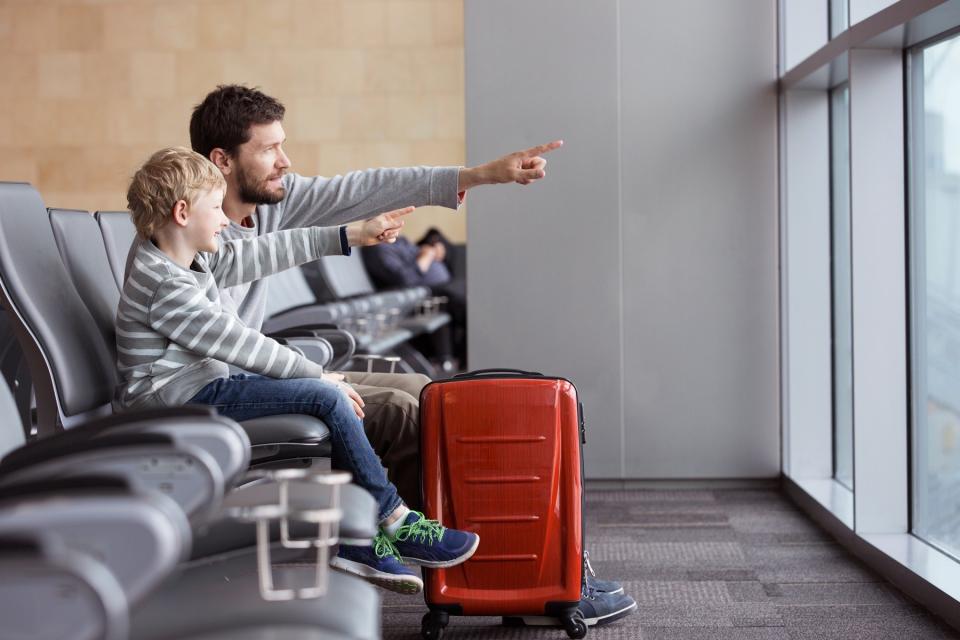What You Need to Know About Traveling Abroad with Your Child

Travelling with children is a necessity for many families. Whether it's visiting relatives across the country or enjoying a family vacation abroad, travel is a vital and vibrant part of many childhoods.
But while travel can be equal parts stressful and joyous, after a divorce, stress can quickly overwhelm if parents do not make all necessary preparations.
The most important preparation for travelling abroad with a child after divorce is obtaining consent from the child's other legal guardians.
Can I travel abroad with my children?
Your custody order or parenting plan should outline how travelling with children after your divorce is handled. For some, their court order may simply require parents to obtain permission from each other for travel abroad. For others, however, their court order may contain specific requirements that must be met before parents are able to travel abroad with their children.
Even if your court order or parenting plan does not explicitly state that written consent is required to travel with children, it can be a good idea to obtain it regardless. Having a record of the agreement to allow a child to travel abroad is critical if disagreements or disputes arise at a later time.
If you are unsure of the requirements outlined in your court order, it's best to consult a family law professional before making any travel plans.
What documentation do I need from my co-parent?
Once you've determined whether any documentation is needed for your trip, you'll need to create that documentation with all relevant information should you run into the need to use it. The government recommends that parents obtain consent from all other persons that have a legal authority to make major decisions about a child's upbringing, such as those with:
- custody rights,
- guardianship rights, or
- parental authority (for those in Quebec)
While there are no strict guidelines as to what must be included in a child travel consent letter, a general rule of thumb is to include who, what, where, when, and how to get in contact.
- Who will be travelling with the children?
- Who are the legal guardians of your children? List the full legal names of everyone whose permission is required.
- How can you contact your co-parent or child's other legal guardians? Provide a phone number and secondary form of contact for everyone listed on your consent to travel form.
- For what are you asking permission? Make sure the consent letter clearly indicates whether the permission is to travel out-of-state or abroad.
- Where will you be taking your children? Clearly outline your travel plans in the consent letter.
- When will you be travelling? Provide clear itinerary dates for your trip.
Beyond including this information, it is highly recommended that parents sign their child travel consent letter in the presence of a witness.
Consent letter for children travelling abroad
Use this form if your child will be travelling outside of Canada with you, your co-parent, friends and relatives, or a group.
What documentation do I need for my children?
Besides carrying your child's permission to travel form, it may be necessary to have other documentation on hand for your child.
Passport
If you're planning on travelling abroad with your child, you're likely already aware that you'll need a passport for your child in order to do so. In Canada, each parent and/or legal guardian is required to sign their children's passport applications. After a divorce, parents must also provide all court and legal documents related to the child's custody, mobility, and access. Those documents are in addition to proof of parentage and proof of your child's Canadian citizenship.
When you and your child have different last names
Parents who have a different family name than their children may wish to have additional documentation that confirms their relationship on hand while travelling. A child's birth certificate may be appropriate for this documentation. Parents can also carry a marriage or divorce certificate that documents the name change.
Do I need special documentation for other countries?
When travelling abroad, parents should thoroughly research the countries they are visiting to see if they have any documentation requirements for children travelling without both or either of their parents. Providing incomplete or incorrect documentation when travelling abroad can hold-up an otherwise well-planned trip or prevent it from proceeding entirely. To prevent this from happening, contact the consulate or embassy of the countries you are planning to visit well before your trip.
What if parents cannot agree on travel plans?
If permission to travel abroad with your children is required by court order, parents should never disregard this requirement and travel without it. Doing so may be considered international child abduction, which the Canadian government defines as "when a parent, guardian or other person with lawful care of charge of a child removes that child from Canada, or retains that child outside Canada, without either the legal authority or permission of a parent who has full or joint custody rights."
If you're worried that your co-parent may attempt to take your child outside of Canada without your permission, consult a legal professional as soon as you can and consider submitting your child to the System Lookout List, which aims to protect against unauthorized applications for children's passports.



